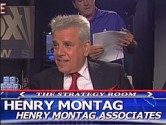

Hardly a week goes by when we aren’t pummeled by the latest round of troubling economic news. Unemployment is still high; job growth remains stagnant. The stock market is down sharply and the weak housing market remains mired with foreclosures. Washington seems broken, with Democrats and Republicans locked in deep disagreement about how to fix the economy. Meanwhile, we’re teetering on a second recession, as one European country after another struggles with the global debt crisis.
Amid all this turmoil, families, too, are coping with excessive debt and struggling to make ends meet. And here, perhaps, is the most troubling thing: At a time when we all need to learn from the financial crises affecting our country, as well as acknowledging the mistakes we’ve made ,we’re doing very little to teach fiscal literacy to the next generation of consumers—our kids. As a result, high school seniors routinely score less than 50 percent on a personal finance exam given by the Jump Start Coalition for Personal Financial Literacy.

This is simply no longer acceptable. Financial Forums has developed a multigenerational program called “Fiscal Literacy for Kids and their Families,” designed to provide children—together with their parents and grandparents—the basic skills needed to assure a family’s healthy financial future.
The program is sponsored by Congressman Steven Israel co author of the recently enacted Consumer Protection Act, and is for families whose older kids may be getting ready for college or the workplace. We felt that these teens are particularly vulnerable as they’re away from home for the first time and need to start learning how to pay their own bills and live within a preset budget—before they get into financial trouble.
Here are some topics we cover:
Money and values within your family. Creating realistic financial goals, understanding the difference between “wants” and “needs” .
Living within your means. Managing our money , Maintaining a budget, Paying bills, Banking on and offline, Writing checks and record keeping.
Understanding the importance of good credit. Avoiding hefty credit , debit card, ATM fees, as well as other financial pitfalls? Building a credit history or rebuild poor credit?
Basic saving and investment strategies. Starting saving when you’re young—even when you don’t think you can?
If we’re going to be successful in teaching such skills, we need to connect kids with their families, and help them create environments where they can broach a topic many families have more difficulty talking about than sex—money. In doing so, we also need to recognize that grandparents, where appropriate, can work with parents and play an integral part in providing some sound guidance in this area. It can also be a wonderful bonding experience for a grandparent to have these conversations with their or others kids as they have so much knowledge and experience to share.
In their haste to provide a better life for their children, many baby boomers have often spoiled their kids (yes, we speak from experience). Now may be a good time to re-instill some old-fashioned fiscal values, acknowledging our mistakes by teaching and practicing fiscal responsibility that will enable the next generation to grow up as independent young adults.
Teaching fiscal literacy is one means of breaking a cycle of financial problems that parents have inadvertently passed down to their children. And as our nation struggles to resolve its larger financial crises, this is the perfect opportunity to do so. We believe it’s one of a parents most important responsibilities to have their kids function as independent responsible young adults, living within their means, before they leave their homes.
Editor’s Note: Henry Montag and Ron Roel have been recognized by New York Congressman Steve Israel for the work they are doing to promote family financial literacy. Here is a copy of Rep. Israel’s commendation.
Long Island Business Journal Commentary “Fiscal Literacy Crucial for Future Consumers”
============================================================
Henry Montag, partner of Financial Forums Inc., is an Independent Certified Financial Planner in practice since 1976.
Ronald E. Roel, partner of Financial Forums Inc., is a veteran writer and editor who specializes in aging, financial/retirement planning and real estate issues.
Leave a Reply